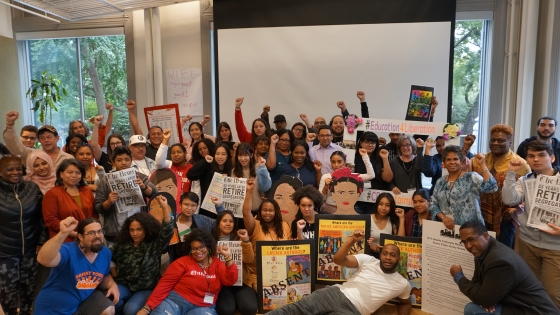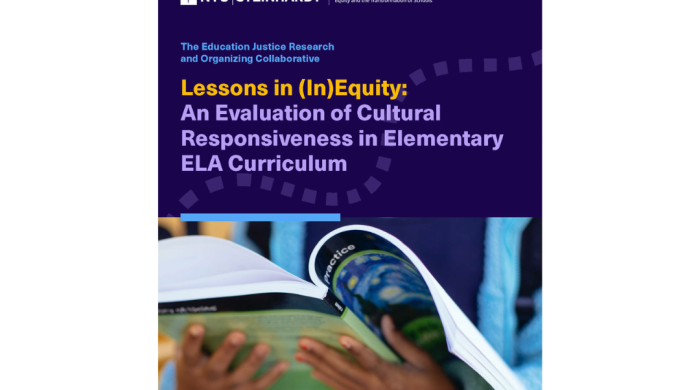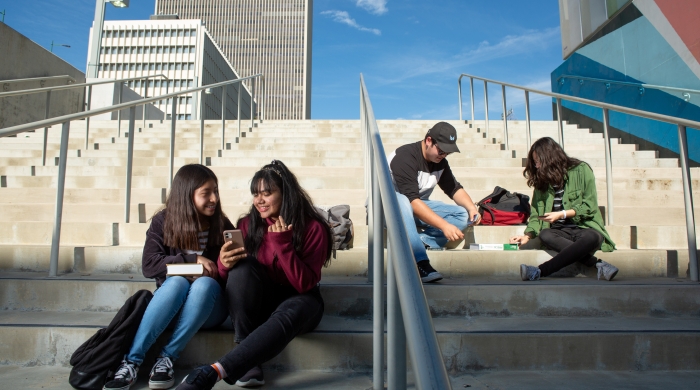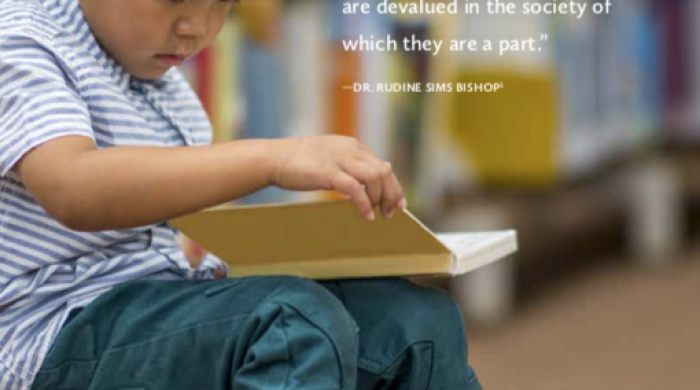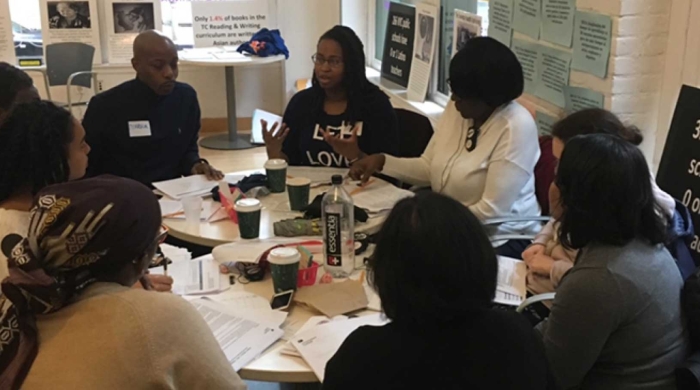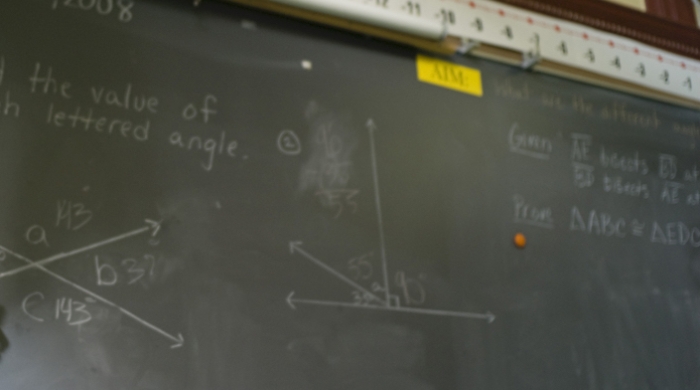EJROC builds on a long tradition of movement-driven, community-derived research. We aim to democratize education data, research and policy, and develop and carry out research projects with, and in response to the needs of, education organizing groups, magnifying the voices of grassroots communities of color. Original research is driven by parent, youth, and community concerns and insights, and is tied directly to community organizing campaigns. We can provide quick-turnaround data analysis, policy briefs, fact sheets, and other tools that can be generated quickly, within the timeline of organizing campaigns
Conversations That Shift The Ground: Exploring Outcomes Associated with the CRE ELA & CRSE STEAM Curriculum Evaluation Scorecards
This study is significant because advancing equity in education is a complex and challenging endeavor. While many schools are committed to equity, the pervasiveness of curriculum that centers white middle-class culture while marginalizing and excluding people of color and other minoritized communities remains a challenge.
Curriculum Author and Character Demographics
EJ-ROC conducted an analysis of the authorship and main character portrayal for three widely used elementary English Language Arts curriculum – Houghton Mifflin Harcourt, McGraw HIll, and Savvas Learning Company.
Lessons in (In)Equity: An Evaluation of Cultural Responsiveness in Elementary ELA Curriculum
EJ-ROC conducted a culturally responsive evaluation of three widely used elementary school English Language Arts curriculum and found them to be demeaning and damaging to Black, indigenous and students of color.
Under-Prepared for Culturally Responsive and Sustaining Education: Teachers Entering New York City's Classrooms Report
The purpose of this research project was to learn about the ways that universities and colleges are preparing New York City teachers to implement culturally responsive and sustaining education (CRSE).
CRE Hub: Research & Resources
A multimedia site that provides critical research, communications materials, and organizing toolkits for educators, parents, students, community members, and district leaders to build the movement for culturally responsive education. Here you can find evidence of the proven effectiveness of culturally responsive education and ethnic studies in schools.
EJ-ROC Policy Hub
The Policy Hub is a collection of short, accessible research briefs on topics essential to education equity. Each 2-3 page brief includes research evidence, key takeaways, helpful research links, and best examples of policy and practice.
Diverse City, White Curriculum
This report was written at the request of the NYC Coalition for Educational Justice (CEJ), by the Education Justice Research and Organizing Collaborative (EJ-ROC) at the NYU Metropolitan Center for Research on Equity and the Transformation of Schools. The demographic analysis was conducted by Jacqueline Aboulafia, Huiying B. Chan, Timothy Davis, Charlotte Dubiel, Jahqué Bryan Gooden, Megan Hester, Tahia Islam, Teona Pagan, and Alyana Vera. Graphic design by HOUSEOFCAKES. For questions or more information about CEJ, contact ncapers@nyccej.org or visit www.nyccej.org. For more information about EJ-ROC and the NYU Metro Center, contact nyu-ejroc@nyu.edu.
Confronting the Education Debt
We Owe Billions to Black, Brown and Low-income Students and Their Schools
Chronically Absent: The Exclusion of People of Color from NYC Elementary School Curricula
Chronically Absent: The Exclusion of People of Color from NYC Elementary School Curricula
Is NYC Preparing Teachers to Be Culturally Responsive? Data Snapshot
In this volatile political time when racism and bias are increasingly visible in politics and the media, young people are looking to schools to help them understand the world and themselves.
How Much Funding Do Los Angeles Schools Need?
How Much Funding Do Los Angeles Schools Need?
Failing Brown v. Board: A Continuous Struggle Against Inequity in Public Education
Failing Brown v. Board: A Continuous Struggle Against Inequity in Public Education

